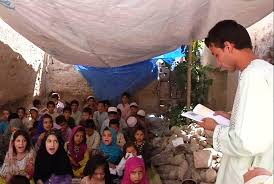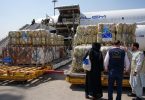GHAZNI CITY (Pajhwok): Residents of southern Ghazni province have voiced their concern over a shortage of teachers in schools. They say the problem has severely affected the quality of education.
While, education department officials acknowledge the issue and insist efforts are underway to address it.
Although the shortage of teachers in Ghazni and some other provinces is not new, education experts highlight the importance of recruiting professional staff, stressing that no society can achieve real progress without a strong education system.
Raz Mohammad Aria, a resident of Shinkay area in Gilan district, told Pajhwok Afghan News the shortage of teachers had persisted for years.
“I have worked in the education sector for a long time. From the past until now, our district has always faced a serious shortage of teachers and the problem remains unsolved,” he said, adding that filling teacher vacancies would have a highly positive impact on the learning process.
Haji Mohammad Mahmoodi, a resident of the Targan area in Jaghatu district, shared similar concerns.
“I am head of a high school here in Targan. We do not have enough teaching staff and our students cannot study the way they should,” he said. Filling teacher posts, he added, would greatly improve the quality of education.
Residents of Ghazni City, Jaghori, Nawa and other areas also complained about the persistent shortage of teachers in their schools.
Maiwand, a resident of Azadkhan area in Ghazni City, said: “We are faced with a shortage of teachers at our school. We want the government to pay serious attention to this issue.”
Similarly, Ghulam Sakhi, an elder from the Loman area of Jaghori district, said the shortage of teachers had led to disorder, frequent absenteeism among students and a decline in the quality of lessons.
He added that the problem had also reduced students’ interest in learning.
Dr. Abdul Jamil Bashiri, a university lecturer, said genuine progress and stability could only be achieved if the education system was developed.
He underlined the need for professional teachers, stressing that all appointments should be made on merit.
“The progress and stability of every society depend on the level of knowledge among its people. Being deprived of education creates grounds for backwardness and instability,” he remarked.
Officials of the Ghazni education department confirmed the issue, saying 4,000 teacher positions are currently vacant in the province.
Mia Gul Sediqi, spokesman for the department, told Pajhwok that of the 4,000 vacancies, 333 had recently been announced. About 1,500 people applied, of whom 1,000 were shortlisted.
“Examinations have been conducted and, in the near future, successful candidates will be appointed to areas most in need,” he said, adding that efforts were ongoing to fill the remaining vacancies with professional teachers and ensure meaningful progress in the education sector.
According to the department, there are around 700 schools in Ghazni, where 10,300 teachers currently impart education to about 450,000 students.







